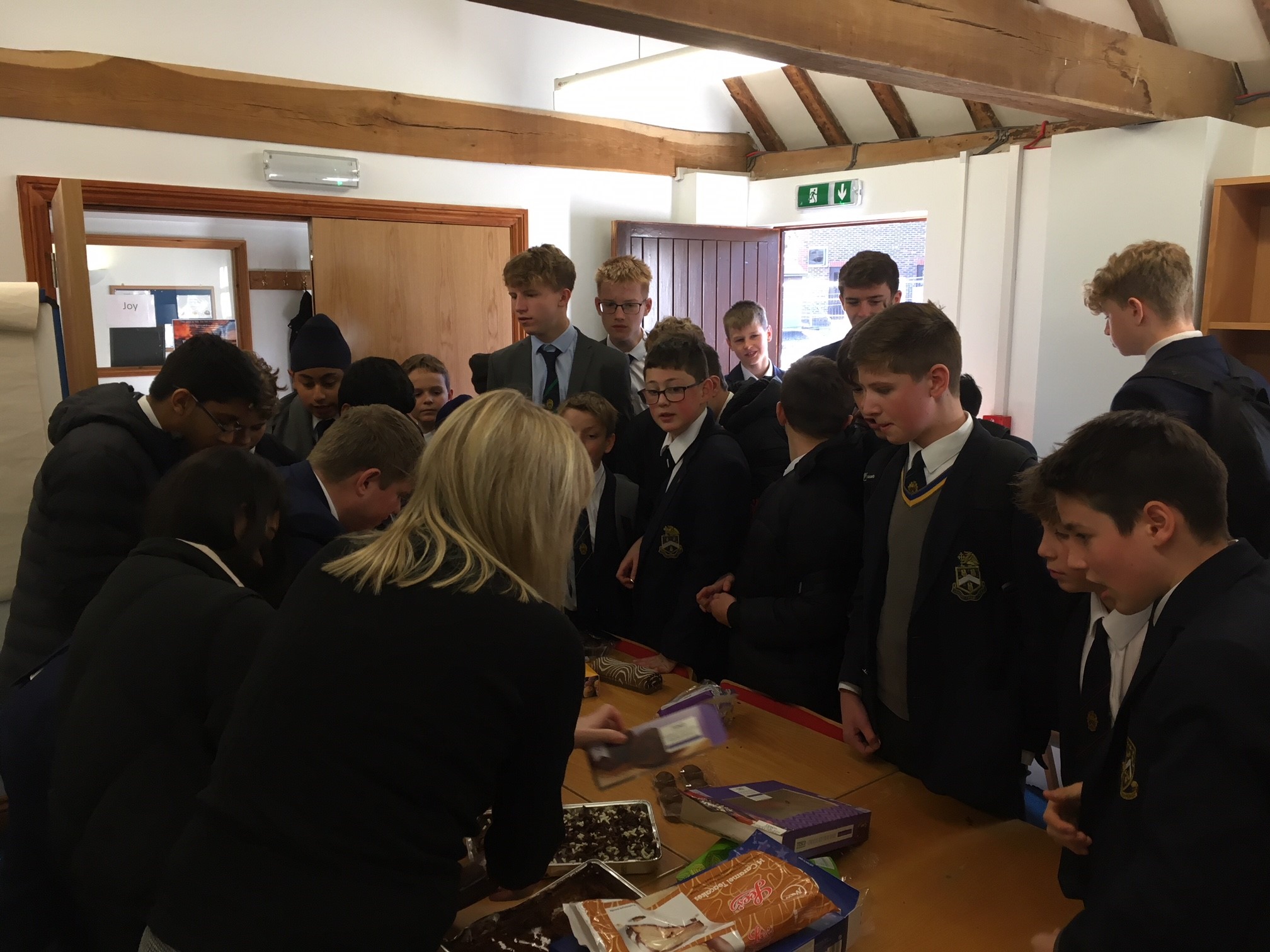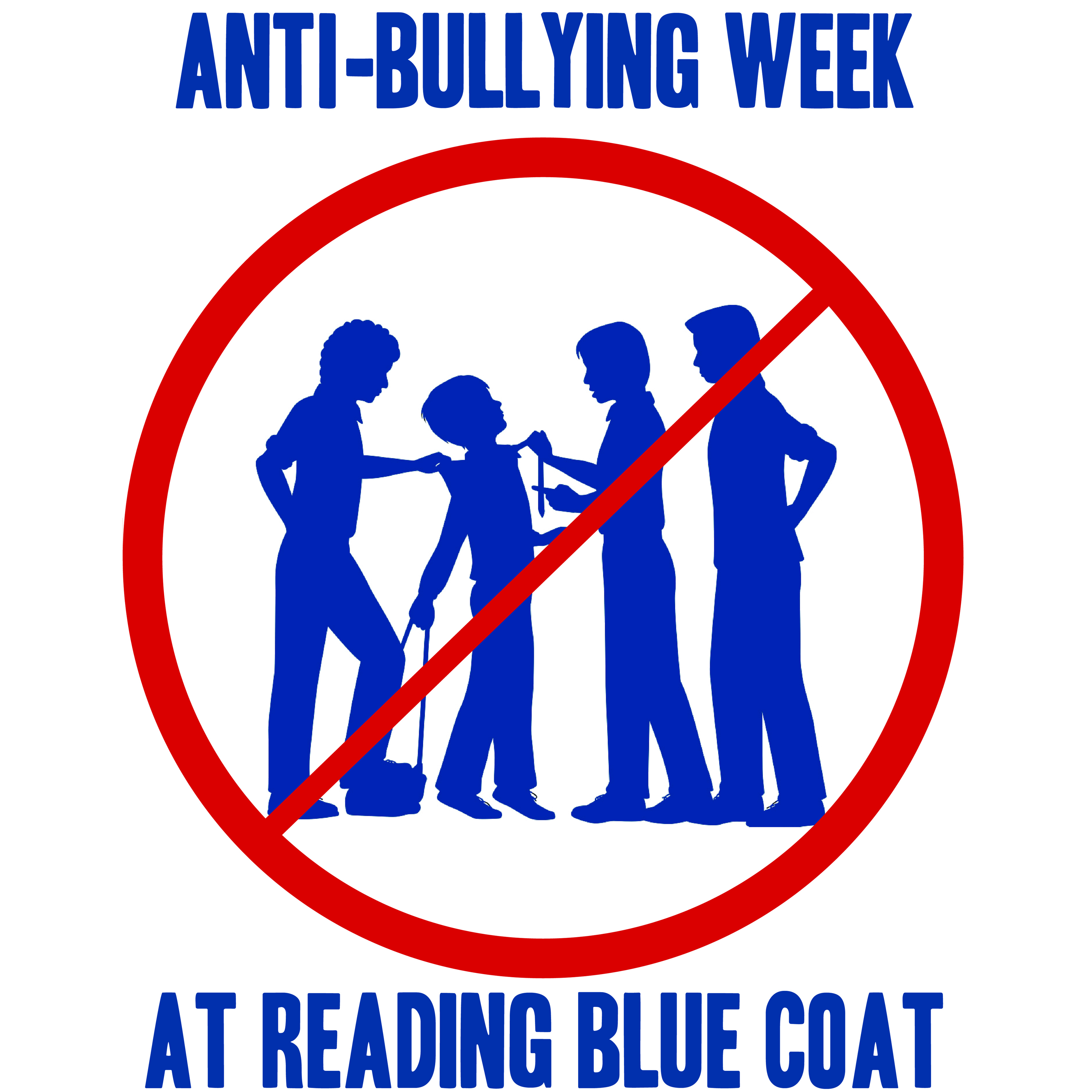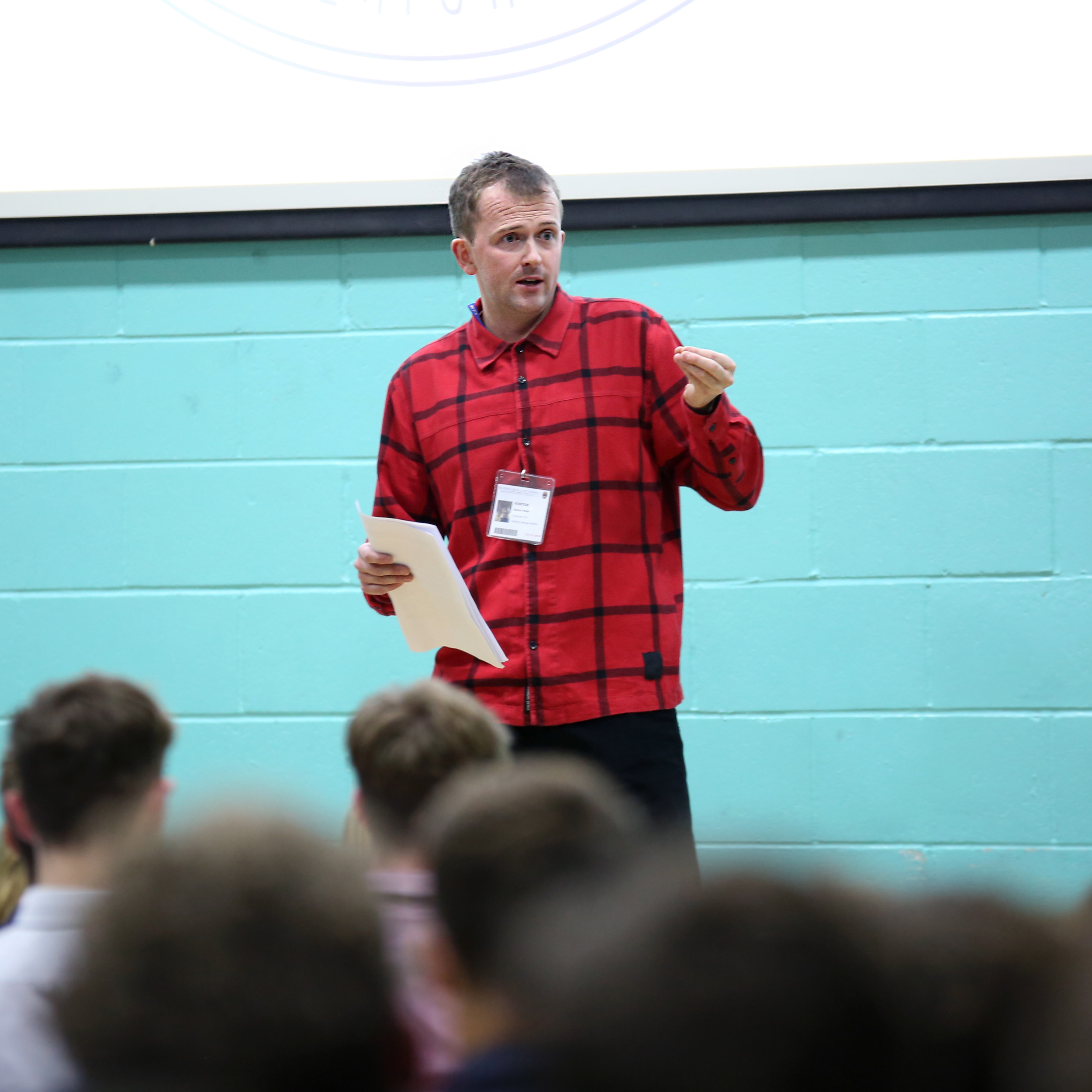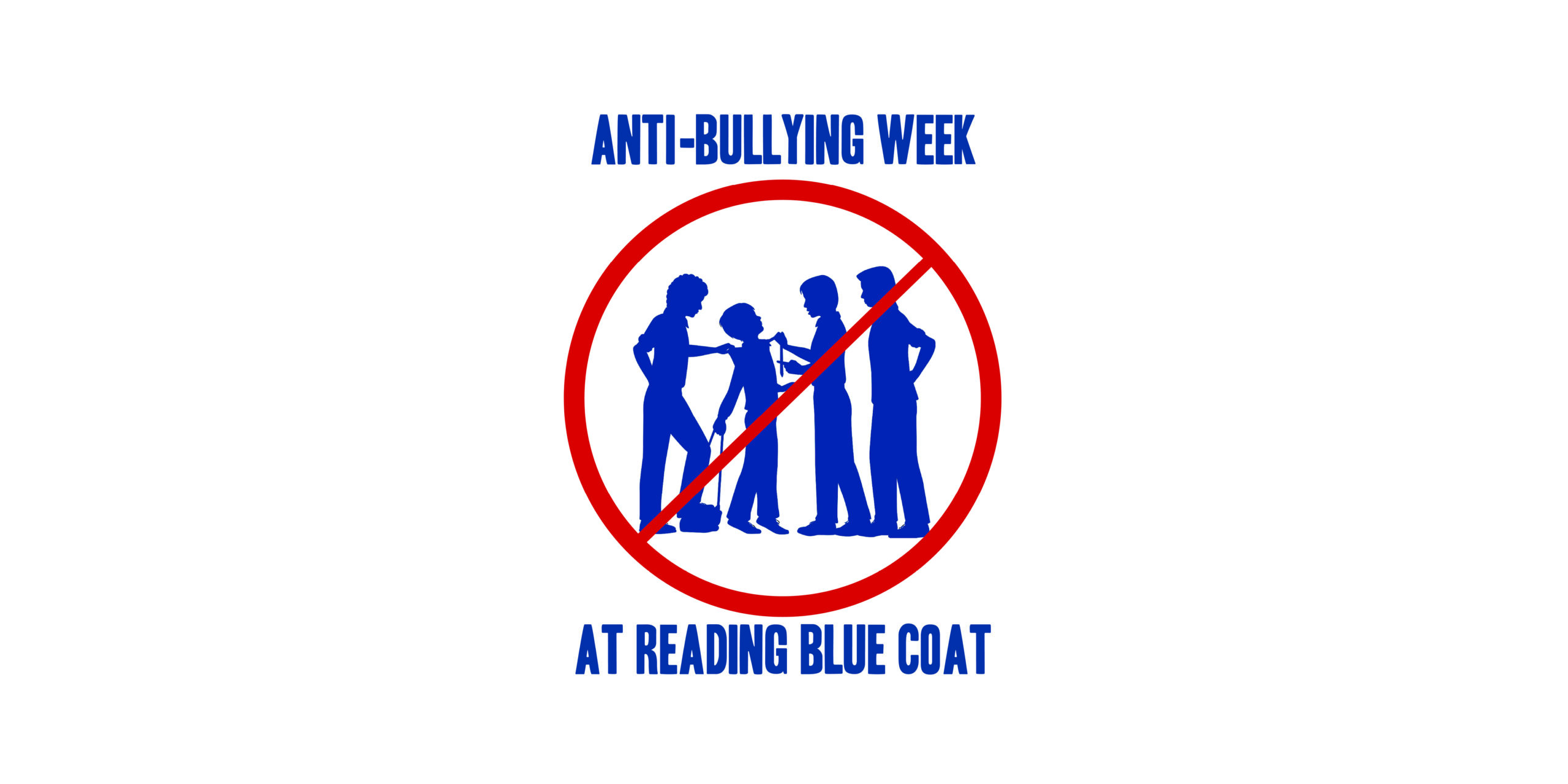Anti-Bullying Week 2019
Monday 11 November marked the start of the annual Anti-Bullying Week in the UK. To celebrate, Reading Blue Coat’s Deputy Head Pastoral, Dr. Guy Williams, gave a brilliant assembly to set the tone, and to better understand the need for Anti-Bullying Week.
Below is the fantastic assembly given by Dr. Williams.
This week is the UK’s national anti-bullying week. In this morning’s assembly I will be offering some of my thoughts on the subject. This will be followed by a number of activities this week.
On Tuesday, we will be celebrating odd socks day. You are all encouraged to wear odd socks on Tuesday: the bigger the clash, the bigger the impact. Go big, go colourful, go strange! This is to celebrate our differences and diversities: no two people are the same. In Anti-Bullying Week, we remember our differences are something wonderful, something that enriches us, rather than something to be picked on or marginalised. Accepting others and being grateful for them is what it’s all about.
It was great to see so many odd socks being worn on Tuesday. Particular mention to Mr Shuttleworth, who made sure his odd socks were on proud display by tucking his trousers into them!
 On Wednesday, Mr Leigh and Rev’d Toogood and running a cake sale in aid of the Anti-Bullying Alliance.
On Wednesday, Mr Leigh and Rev’d Toogood and running a cake sale in aid of the Anti-Bullying Alliance.
Very well done to Rev’d. Toogood, Mr Leigh and the Peer Mentors for raising over £56 for the Anti-Bullying Alliance!
On the Thursday we will welcome back Westy to deliver the spiritual assembly, which will incorporate his reflections on bullying.
In Rev’d Toogood’s Spiritual Assembly during Anti-Bullying week, Westy delivered an equally powerful assembly. Chris West is the Youth Minister at St. Andrew’s Church in Sonning, a Church with which Reading Blue Coat has very close ties. Westy spoke about the definition of bullying and referred to how bullying is the act of making someone feel worthless, of making someone feel trodden down or mistreated.
In a surprise twist, Westy invited a pupil to join him in front of the whole School community. Westy pulled a crisp £5 note out of his pocket, and asked his volunteer, Year 8 Luca T, the value of the note. Luca answered ‘Five pounds’. Westy agreed, and went on to crumple the note up so it was creased and out of shape. He then asked what it’s value was again, and again Luca said ‘five pounds!’ Westy agreed and this time put the note in his mouth, before he scratched his ear with it, shouted insults at it and told it that it is worthless, threw it on the floor and stamped on it. He calmly asked once more ‘What is the value of this note?’. Now looking very confused, Luca said ‘five pounds…’. Westy agreed once more and invited Luca to take his seat.
The point that Westy made was that regardless of the way someone is treated, spoken to or made to feel does not reduce their value. Victims of bullying are often made to feel that they are not valuable or good, because of the way that they are treated. At Reading Blue Coat, pupils are encouraged to speak to a member of staff if they have experienced or witnessed bullying, and are reminded that bullying in any form will not be tolerated.
And then on Friday next week all pupils will hear a talk from a visiting speaker, Joshua Miles, who will share his own powerful story about bullying – there will be more information on that shortly.

The School’s final guest during Anti-Bullying Week was actor and anti-bullying advocate Joshua Miles. Joshua spoke to all pupils within the School throughout the day, and shared the same message with all of them.
Joshua grew up in Preston but didn’t have the best childhood. He told a story about his time at school: it started with him buying a new bag to start Year 7 with. When he got to school, he found that everyone had the same school bag, and his was very different but he liked it. Eventually he was called ‘gay’ because his bag was different and he spoke and behaved in a particular way. Josh pretended that he didn’t care what people thought but he began to act out to combat what was being said about him. He felt insecure, but didn’t know how to express how he really felt. Josh started bottling up feelings of shame and embarrassment, which took a toll on his mental health and his happiness.
Joshua knew that he was gay, but didn’t want to be as it meant that he was different from everyone else. Eventually he found that he was able to express himself with the arts, but this made who he truly was more visible for the outside world. One day, Joshua broke down to a teacher and told them everything that had been going on. Joshua said ‘Immediately, the bullies were pulled out of their classes and taken to the Headmaster. They didn’t treat me the same after that point, because they finally understood what they had been doing, and how they had been making me feel.’
Not long after this incident, Josh auditioned for the BBC drama Waterloo Road. After he got the role, his own experiences were reflected, almost identically, in his character’s story line. A young boy who seems different to everyone else is singled out for being ‘gay’. He is then defended by his close friends and teachers, who stand up to the bully, who is eventually expelled from the school for making someone else’s life miserable.
Josh had a very clear message: ‘It is 100% okay to be gay! If you think that you are LGBTQ, you don’t have to hold on to it, nor do you have to share it. Likewise, someone else’s sexuality is not your business. If someone tells you that they are gay, be honoured, but remember that this is not your news to share.’
Finally, Josh gave some advice as to what we can all do about bullying – ‘If something is going on, if you’re being bullied or picked on, tell someone; a teacher, a family member or a friend. If you don’t speak up, then it is likely that this bad treatment will continue. Ultimately, be nice and be kind. Do not be afraid to be the one to say “leave them alone” or to ask “are you okay?”
Thank you so much to Josh, whose truly inspiring talk gave our pupils a true insight into how it might feel to be bullied and for giving such good advice on what to do if you or someone you know is being bullied.

There is one other thing you will see coming your way as part of anti-bullying week, and that is our survey. You will receive this over email and be reminded via your tutors. We are surveying the whole school. The reason we are doing this is that we need to fully understand the picture of bullying at Blue Coat – what is happening, when, where, among which year groups, and so on. It is completely anonymous, so you should be completely honest – we just need the information to help make the school a better place.
For all that we are doing to combat bullying, I think we should have a simple aim. We are working towards a zero-unkindness-school. That is the aim: zero-unkindness. Events like Anti-Bullying Week and schemes like the survey are essential tools to help us get there.
But what is bullying? It is causing harm to another – threatening, humiliating, frightening. It can be physical; it can be verbal; it can be online. We tend to call something bullying when it is repeated or begins to form a pattern; it is this build-up that often makes it most difficult for its victims. Bullying can be targeted against people for who they are: their race, gender, sexuality, religion, age, and so on. It hurts. It damages people. It can ruin lives. The harm it causes spreads in many directions – the victim, his or her family and friends, and of course the bully, who is damaged in turn by their own actions, through isolation, anger, punishment, and fear.
For the sake of everybody, our aim is to eliminate bullying completely from Blue Coat. I just want to clarify that, because it is important. I do not think we should be aiming for a school where there is a small amount of bullying. A place where it happens and you just accept it as part of life. Occasionally you get bullied. There’s no reason to settle for second best or submit to it. For every pupil in the school, I would like them to expect that they will never be bullied. That’s the goal, that’s the expectation. Zero unkindness. You should never be bullied.
The theme for UK Anti-Bullying Week this year, nationwide, is “change starts with us”. I want to launch into that theme now by showing you the UK Anti-Bullying Alliance video:
As they said, the idea is that small changes can make a big difference. Simple changes can break the cycle. It could start with a conversation, checking in, starting to work together. It could be a moment of bravery, a different perspective, or even a single comment. Small changes matter. Change starts with us.
I want to talk about just three possible changes now.
The first small step is pay attention, be aware. Bullying can happen when people don’t notice it, are too busy or distracted, or don’t know what the signs are. Look out for the quiet unkind words, the things which are small on their own but over time build up. Look out for that body language or that look on someone’s face, which says that they are hurt or afraid. Notice whether there are groups that welcome others or exclude. Notice the comment online that just steps over the mark, followed by another and another. Pay attention and ask yourself, is this bullying? Should people have to live with this?
The second small step is think. If you notice something in the actions of others or in your own actions that hurts another, hold that thought. Don’t just move on. For a moment, mentally put yourself in the position of somebody else – what is it like to be that person? To read that comment? Hear those words? Feel that kick? What do those actions lead to? That moment of realisation, thought, could be the change that somebody so desperately needs.
The third small step is reach out. If you, your friend, or just somebody you see is being bullied, tell someone. Make it stop. Let’s not hide behind the idea that this is snitching. We owe loyalty to those who earn it. If you experience suffering or see somebody suffering because of the actions of another, it is only right that this is brought into the open. You cannot be blamed for just being truthful. And that is how we can help one another, whether that help is found in an older pupil, a friend, your parents, your tutor, a teacher. If you are the bully, reach out – there is always a way forwards for those who can admit to their mistakes. If we share and reach out, Blue Coat will be a very safe, very happy school.
So, those are three small changes: pay attention, think, and reach out.
But also remember, as the anti-bullying week slogan says, those changes start with us. Us. We all have to make changes.
It’s easy to think in a school that stopping bullying is somebody else’s job. If you’re a teacher, you might think that it’s down to the pupils either to bully or be kind, and it is their responsibility. If you’re a pupil, you might think that teachers are supposed to be in charge, so it’s down to them. But this is how bullying happens, when we are waiting for somebody else to deal with it, for somebody else to make it their problem. I would like us all to have the right mindset towards bullying and unkindness. Any bullying is a problem for all of us at Blue Coat. It is another little dent in our school. So, we have to see the solution as something we are all involved in. We are the collective, the community. We all have to raise our standards. Have you ever walked past something wrong? Ignored it? Gone along with it? Laughed at it? Accepted it? Shared it? Have you assumed that someone else will take care of it? It’s someone else’s problem? Have you shrugged it off? Been a bystander? Well, from now on, no longer.
The change starts with us. And that means, whoever you are, the change also starts with you. Every single one of us next week, I hope, will be looking for small changes that will make a difference and make Blue Coat completely free from bullying – a zero unkindness school.
I hope you enjoy, learn from, and benefit from Anti-Bullying Week.

